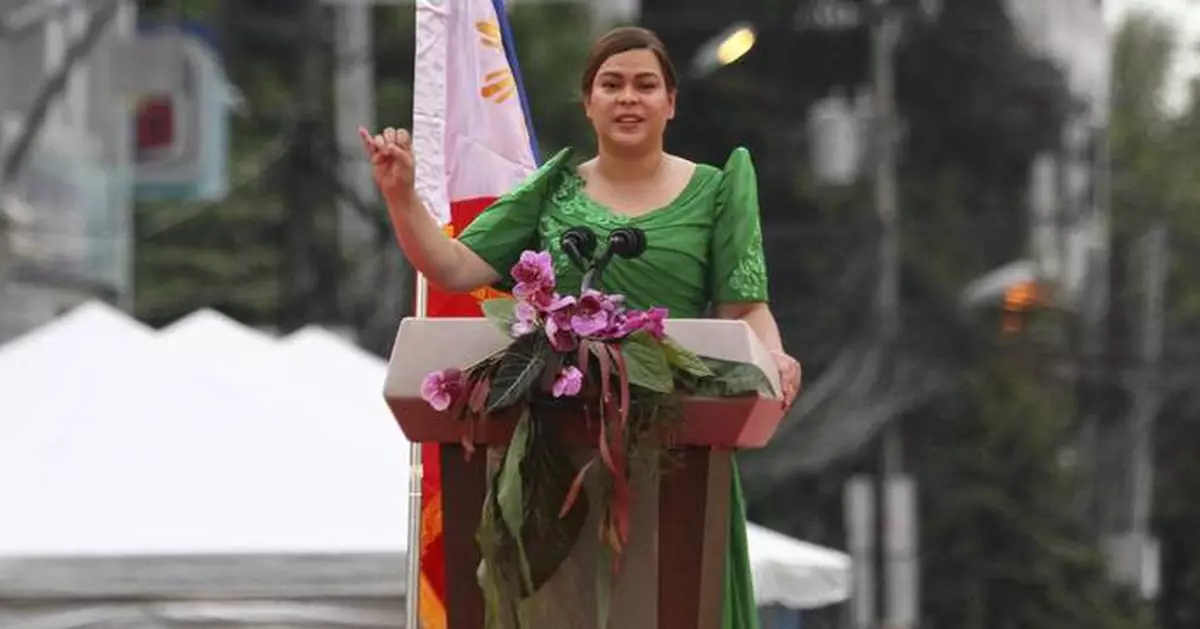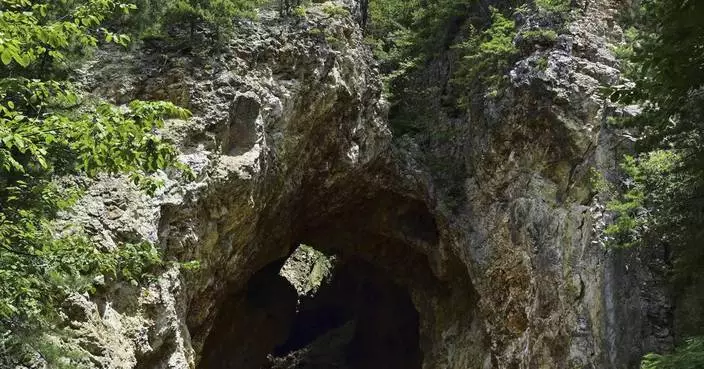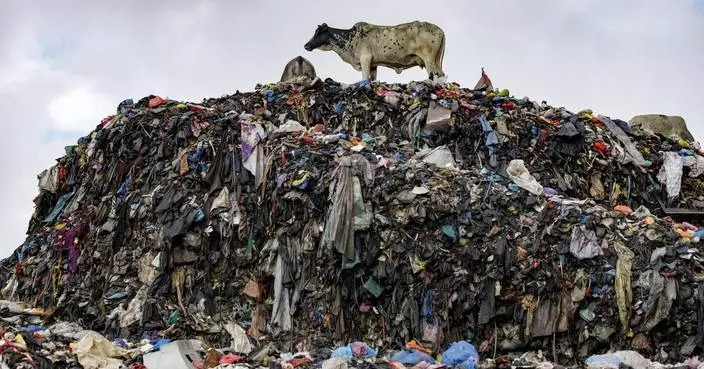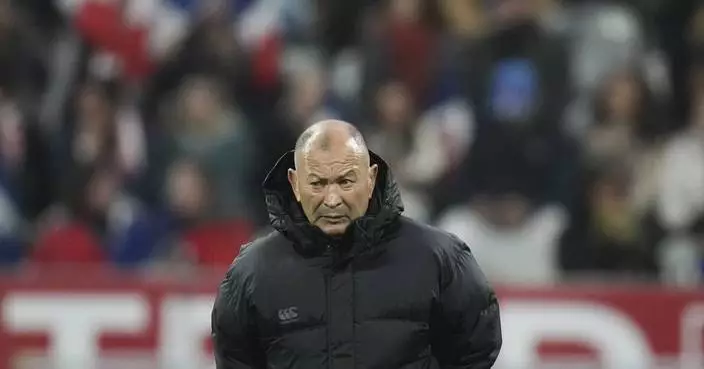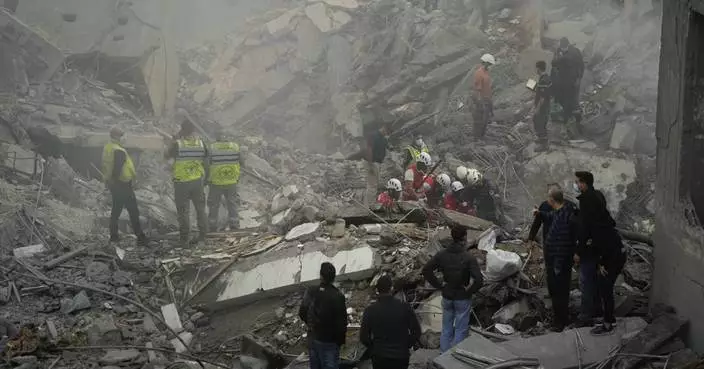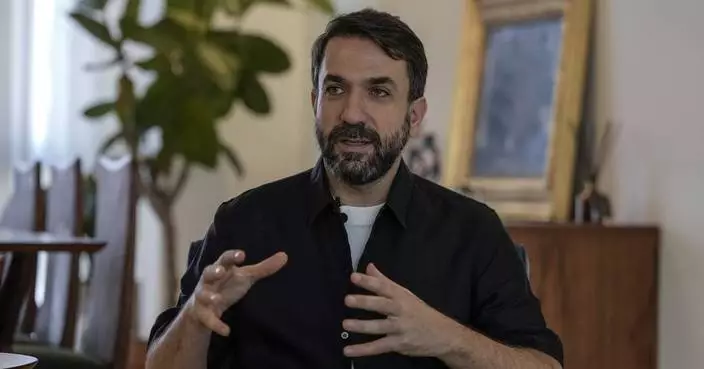MANILA, Philippines (AP) — Philippine Vice President Sara Duterte said Saturday she has contracted an assassin to kill the president, his wife and the House of Representatives speaker if she herself is killed, in a brazen public threat that she warned was not a joke.
Executive Secretary Lucas Bersamin referred the “active threat” against President Ferdinand Marcos Jr. to an elite presidential guards force “for immediate proper action.” It was not immediately clear what actions would be taken against the vice president.
The Presidential Security Command immediately boosted Marcos' security and said it considered the vice president's threat, which was “made so brazenly in public,” a national security issue.
The security force said it was “coordinating with law enforcement agencies to detect, deter, and defend against any and all threats to the president and the first family.”
Marcos ran with Duterte as his vice-presidential running mate in the May 2022 elections and both won with landslide victories on a campaign call of national unity.
The two leaders and their camps, however, rapidly had a bitter falling-out over key differences, including in their approaches to China’s aggressive actions in the disputed South China Sea. Duterte resigned from the Marcos Cabinet in June as education secretary and head of an anti-insurgency body.
Like her equally outspoken father, former President Rodrigo Duterte, the vice president became a vocal critic of Marcos, his wife Liza Araneta-Marcos and House Speaker Martin Romualdez, the president’s ally and cousin, accusing them of corruption, incompetence and politically persecuting the Duterte family and its close supporters.
Her latest tirade was set off by the decision by House members allied with Romualdez and Marcos to detain her chief of staff, Zuleika Lopez, who was accused of hampering a congressional inquiry into the possible misuse of her budget as vice president and education secretary. Lopez was later transferred to a hospital after falling ill and wept when she heard of a plan to temporarily lock her up in a women’s prison.
In a pre-dawn online news conference, an angry Sara Duterte accused Marcos of incompetence as a president and of being a liar, along with his wife and the House speaker in expletives-laden remarks.
When asked about concerns over her security, the 46-year-old lawyer suggested there was an unspecified plot to kill her. “Don’t worry about my security because I’ve talked with somebody. I said 'if I’m killed, you’ll kill BBM, Liza Araneta and Martin Romualdez. No joke, no joke,’” the vice president said without elaborating and using the initials that many use to call the president.
"I’ve given my order, ‘If I die, don’t stop until you’ve killed them.’ And he said, ’yes,’” the vice president said.
Under the Philippine penal code, such public remarks may constitute a crime of threatening to inflict a wrong on a person or his family and is punishable by a jail term and fine.
Amid the political divisions, military chief Gen. Romeo Brawner issued a statement with an assurance that the 160,000-member Armed Forces of the Philippines would remain nonpartisan “with utmost respect for our democratic institutions and civilian authority.”
“We call for calm and resolve,” Brawner said. “We reiterate our need to stand together against those who will try to break our bonds as Filipinos.”
The vice president is the daughter of Marcos’ predecessor, Rodrigo Duterte, whose police-enforced anti-drugs crackdown when he was a city mayor and later as president left thousands of mostly petty drug suspects dead in killings that the International Criminal Court has been investigating as a possible crime against humanity.
The former president denied authorizing extrajudicial killings under his crackdown but has given conflicting statements. He told a public Philippine Senate inquiry last month that he had maintained a “death squad” of gangsters to kill other criminals when he was mayor of southern Davao city.
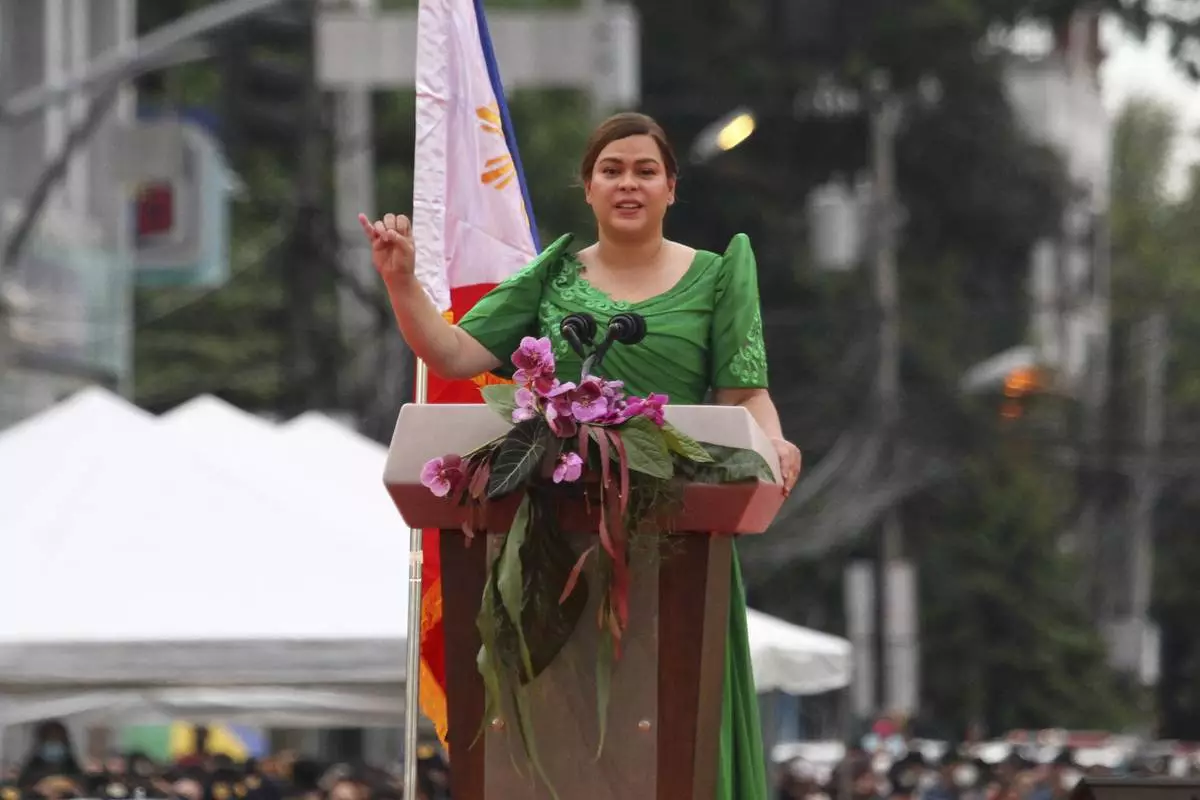
FILE - Philippine Vice President-elect Sara Duterte, daughter of outgoing populist president of the Philippines, delivers her speech during her oath-taking rites in her hometown in Davao city, southern Philippines, on June 19, 2022. (AP Photo/Manman Dejeto)
BAKU, Azerbaijan (AP) — The United Nations' annual climate talks pushed into overtime Saturday as negotiators pressed on to get a deal on money for developing nations to curb and adapt to climate change.
Several countries were left angry and disappointed at the latest proposed deal from the talks on Friday afternoon. That draft pledged $250 billion annually by 2035, more than double the previous goal of $100 billion set 15 years ago but far short of the annual $1 trillion-plus that experts say is needed.
Top leaders and negotiators — including the U.K.’s Ed Miliband, Germany’s climate envoy Jennifer Morgan and delegates from Central and South American countries — huddled in offices much of Saturday as they hashed out a new deal that both rich and developing nations could agree on. Sources within the negotiations told The Associated Press that the next version of the deal could see a new, higher figure of $300 billion under the right conditions.
But for Panama's negotiator Juan Carlos Monterrey Gomez even a higher figure is “still crumbs.”
“How do you go from the request of $1.3 trillion to $300 billion? I mean, is that even half of what we put forth?” he asked.
Alden Meyer, of the European think tank E3G, said negotiators now have very little room for error.
“They’ve got to make sure whatever they put on the table is something that can fly. ... Because otherwise we start to lose critical mass as ministers start to leave tonight and into tomorrow,” Meyer said. “So, they are under a deadline, but this is when it gets real.”
The climate talks, called COP29, in Baku, Azerbaijan, were scheduled to end Friday. Workers have already begun dismantling the venue for the talks.
Wealthy nations are obligated to help vulnerable countries under an agreement reached at these talks in Paris in 2015. Developing nations are seeking $1.3 trillion to help adapt to droughts, floods, rising seas and extreme heat, pay for losses and damages caused by extreme weather, and transition their energy systems away from planet-warming fossil fuels and toward clean energy.
“We’re doing everything we can on each of the axes to build bridges and to make this into a success,” said EU climate commissioner Wopke Hoekstra.
On Saturday morning, Irish environment minister Eamon Ryan said that he felt there'll be a new number in the next draft.
"We’ll have to see what the final number is. I don’t think it’ll be the one initially published yesterday," Ryan said. “But it’s not just that number — it's how do you get to 1.3 trillion."
Ryan said that any number reached at the COP will have to be supplemented with other sources of finance, for example through a market for carbon emissions where polluters would pay to offset what they emit.
The amount in any deal reached at COP negotiations — often considered a “core” — will then be mobilized or leveraged for greater climate spending. But much of that means loans for countries drowning in debt.
"We have to get agreement quickly. And I hope and believe we can,” Ryan said.
Panama's Monterrey Gomez slammed rich nations for how they've handled the talks so far.
“This is what always the developed world does to us in all multilateral agreements," he said. “They push and push and push, and at the last minute, they get us tired, they get us hungry, they get us dizzy.”
It means any agreements reached “don’t truly represent the needs of our people," he said.
Some observers were also wary about how negotiations were going Saturday.
“A fundamental principle of U.N. summits is that they are a party driven process, where countries are supposed to negotiate directly with each other,” said Mohamed Adow, director of the think tank Power Shift Africa.
But this year, open negotiations have been replaced with backroom deals, and there's been pressure on developing countries to accept an offer that's far from what they wanted, he said. "This is a worrying sign and must not be allowed to happen,” he said.
Meyer of E3G said it’s also still up in the air whether a deal will come out of Baku at all.
“It is still not out of the question that there could be an inability to close the gap on the finance issue,” he said. “That obviously is not an ideal scenario.”
Activists continued to protest within the venue Saturday, with dozens outside one of the main plenary halls calling for a more ambitious finance deal. They called for “trillions, not billions” in climate cash and pushed for countries to phase out planet-warming fossil fuels.
Late Friday, Several dozen activists marched in silence outside the halls where delegates meet, raising and crossing their arms in front of themselves to indicate rejection of the draft text.
Also late Friday, 355 civil society organizations released a letter in support of the G77 and China negotiating group’s rejection of the latest draft.
The letter urged negotiators to “stand up for the people of the Global South," saying that “no deal in Baku is better than a bad deal.”
Lidy Nacpil, a Filipino coordinator with the Asian Peoples’ Movement on Debt and Development, said activists would still be unhappy if the climate finance number doubles to $500 billion.
“We’re still at this point where we are asking developing countries to stay strong and not just give in to far, far less than what should be,” she said.
Associated Press journalists Ahmed Hatem, Aleksandar Furtula and Joshua A. Bickel contributed to this report.
The Associated Press’ climate and environmental coverage receives financial support from multiple private foundations. AP is solely responsible for all content. Find AP’s standards for working with philanthropies, a list of supporters and funded coverage areas at AP.org.
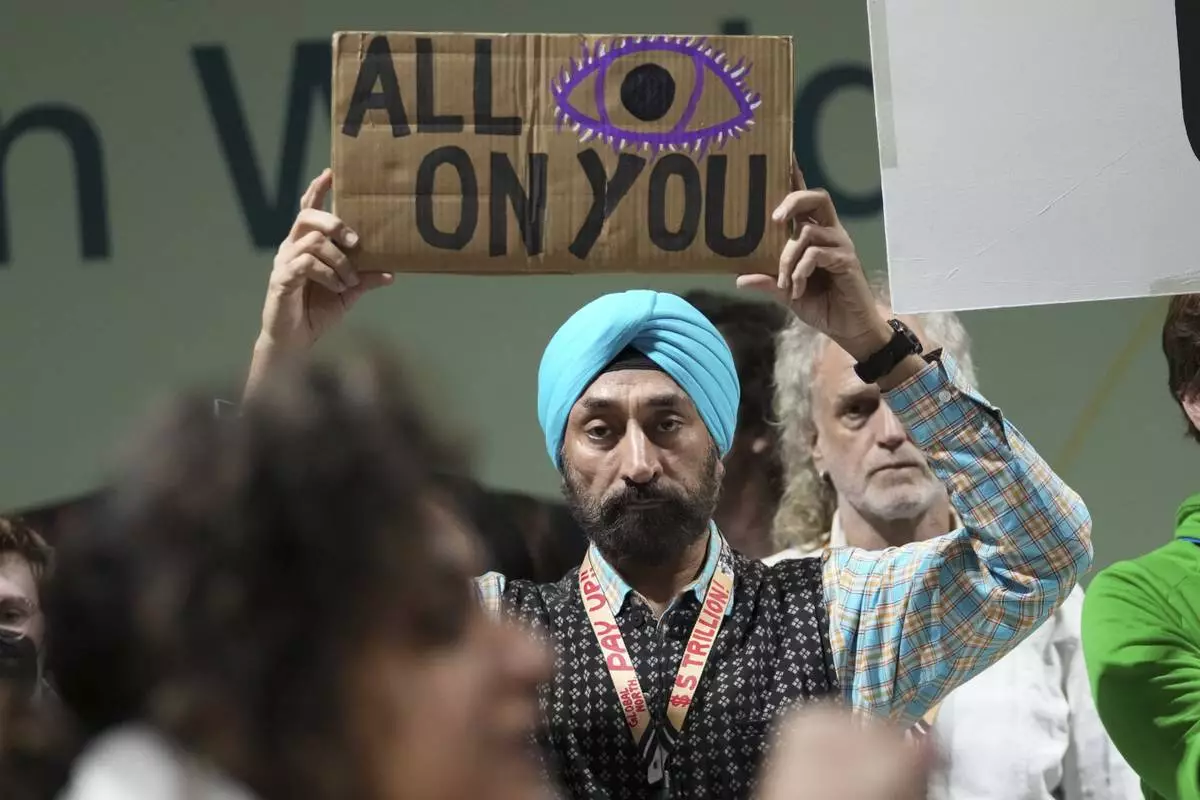
Activist Harjeet Singh holds a sign as he attends a demonstration for climate finance at the COP29 U.N. Climate Summit, Saturday, Nov. 23, 2024, in Baku, Azerbaijan. (AP Photo/Sergei Grits)
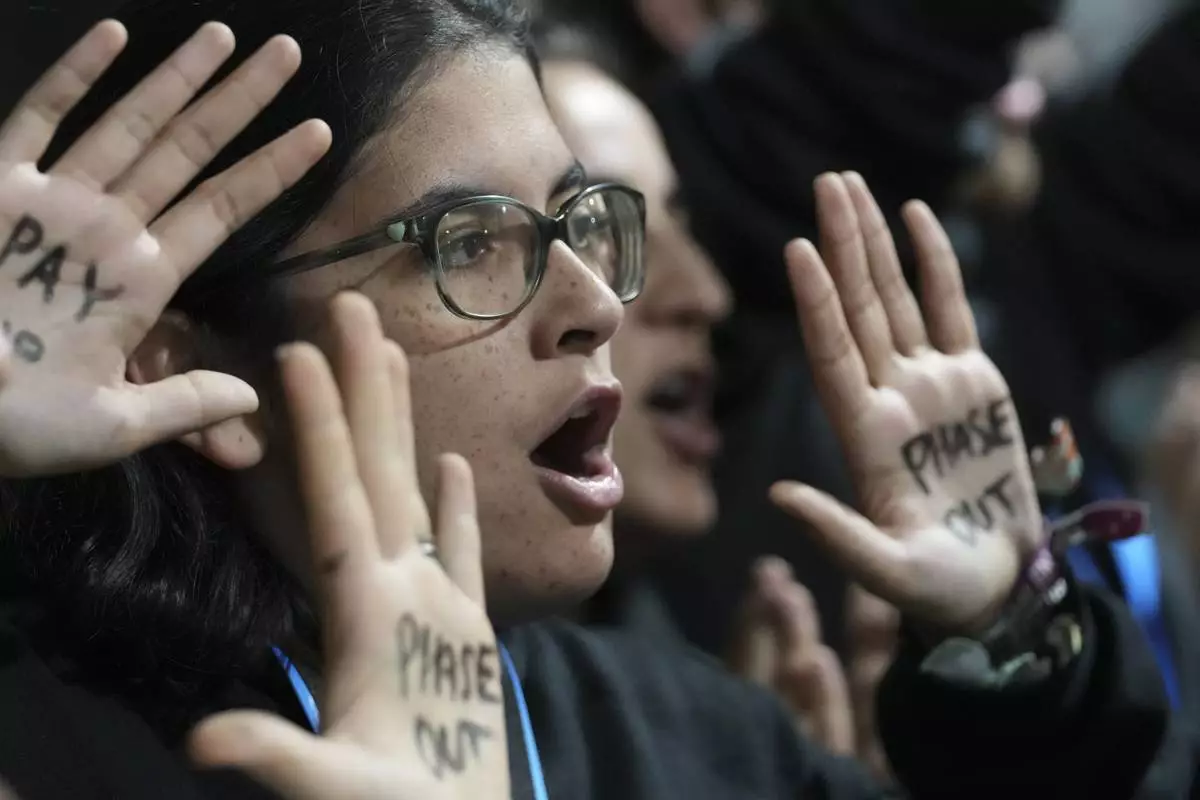
An activists participates in a demonstration for climate finance at the COP29 U.N. Climate Summit, Saturday, Nov. 23, 2024, in Baku, Azerbaijan. (AP Photo/Sergei Grits)
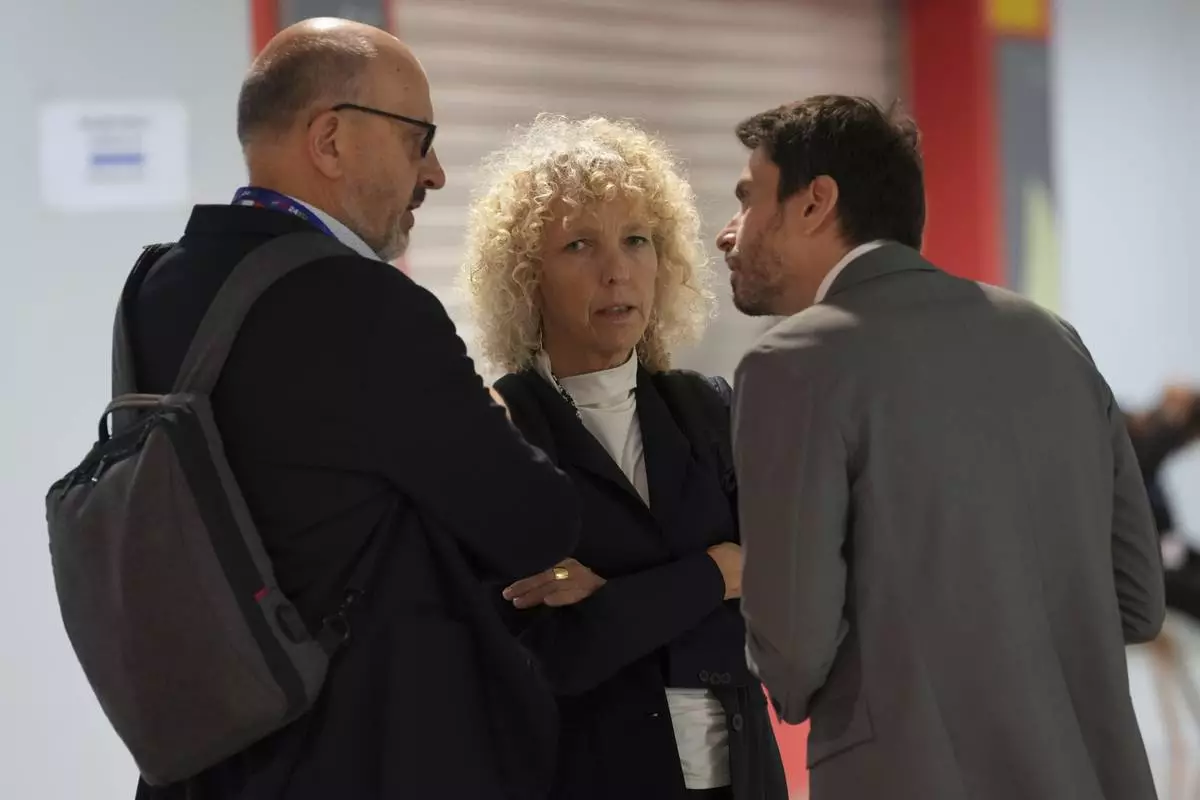
Jennifer Morgan, Germany climate envoy, speaks in a hallway during the COP29 U.N. Climate Summit, Saturday, Nov. 23, 2024, in Baku, Azerbaijan. (AP Photo/Peter Dejong)
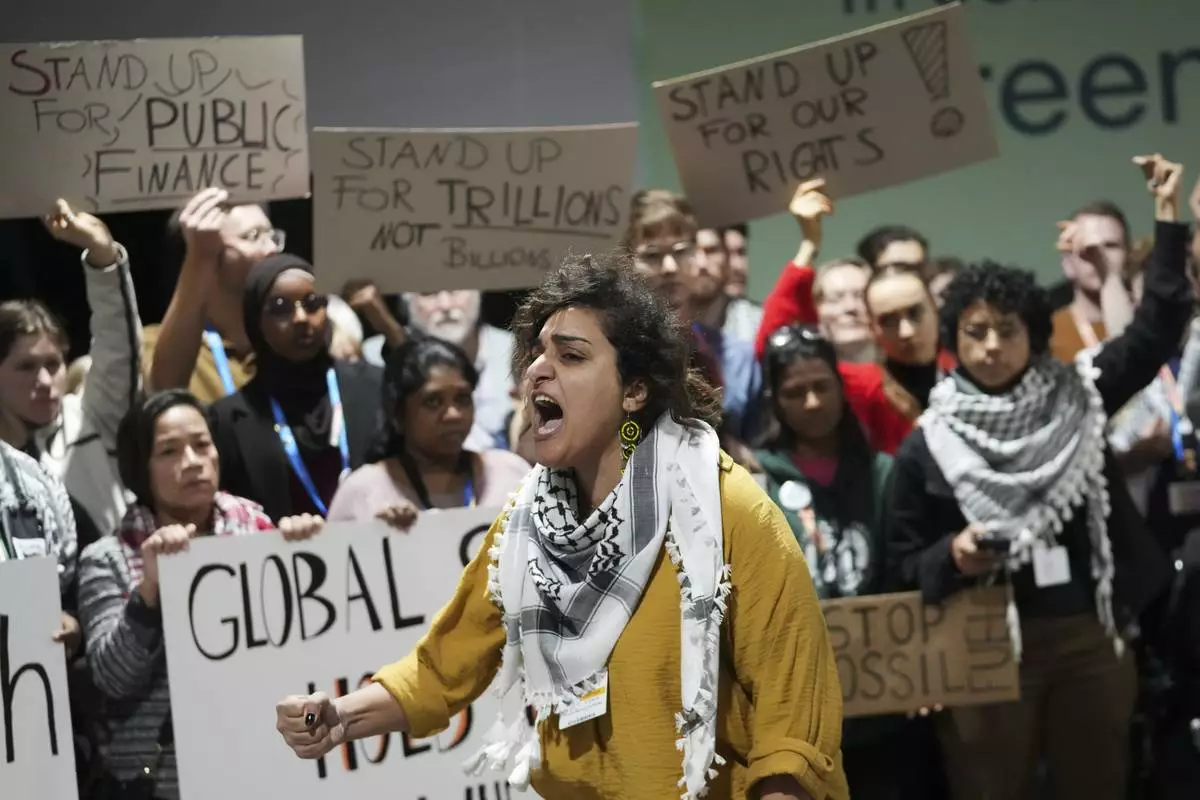
Activists participate in a demonstration for climate finance at the COP29 U.N. Climate Summit, Saturday, Nov. 23, 2024, in Baku, Azerbaijan. (AP Photo/Sergei Grits)
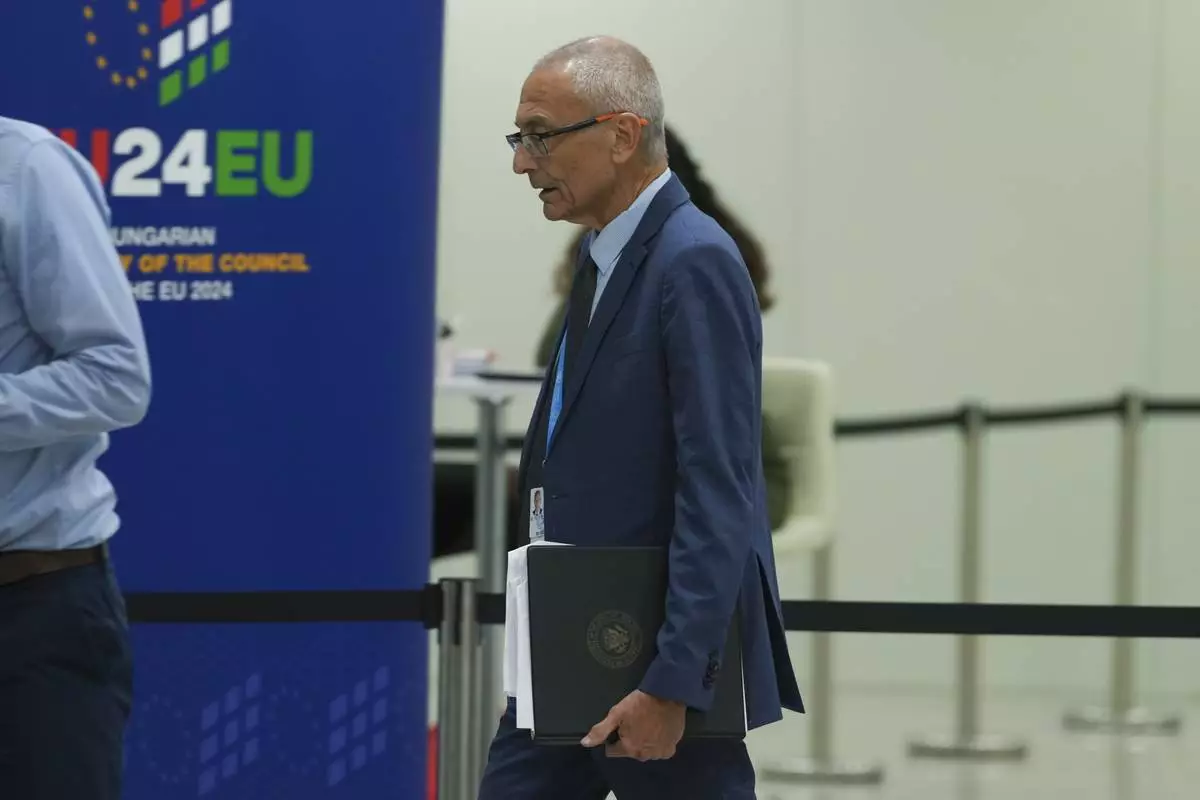
John Podesta, U.S. climate envoy, walks in the hallway during the COP29 U.N. Climate Summit, Saturday, Nov. 23, 2024, in Baku, Azerbaijan. (AP Photo/Peter Dejong)
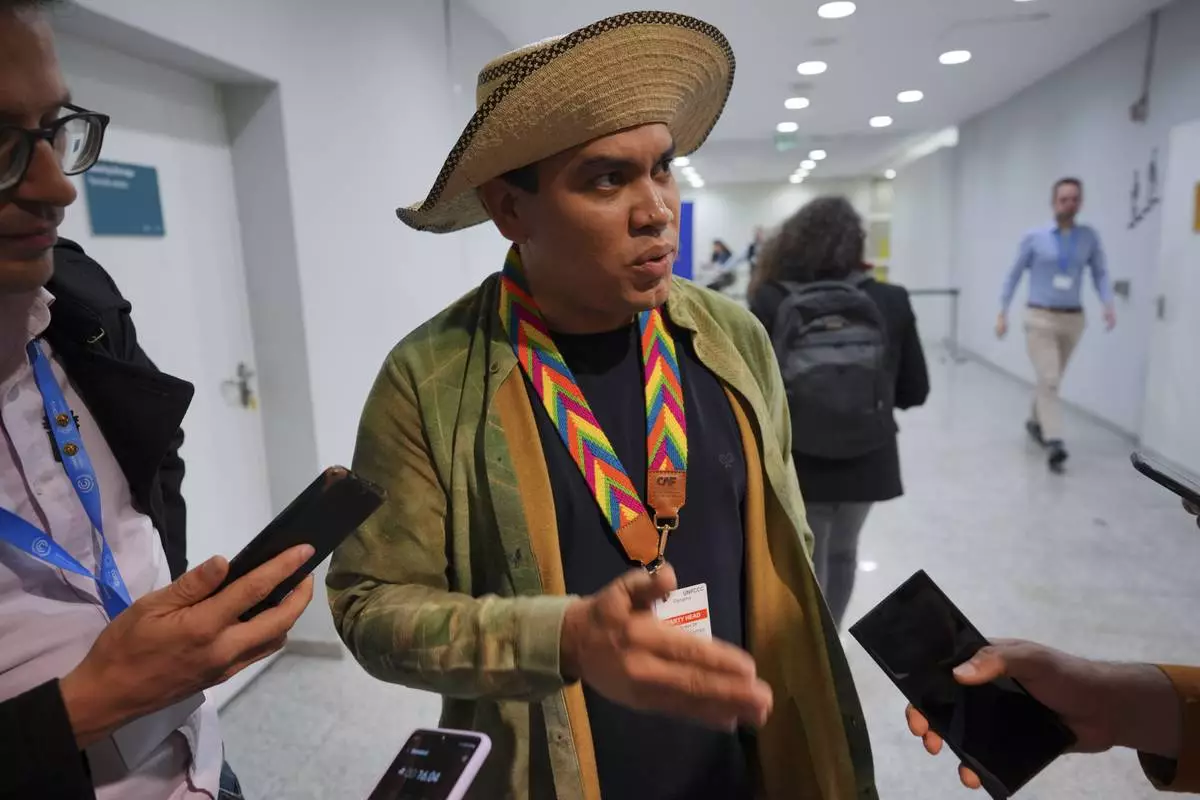
Panama Climate Envoy Juan Carlos Monterrey Gomez speaks to members of the media at the COP29 U.N. Climate Summit, Saturday, Nov. 23, 2024, in Baku, Azerbaijan. (AP Photo/Peter Dejong)
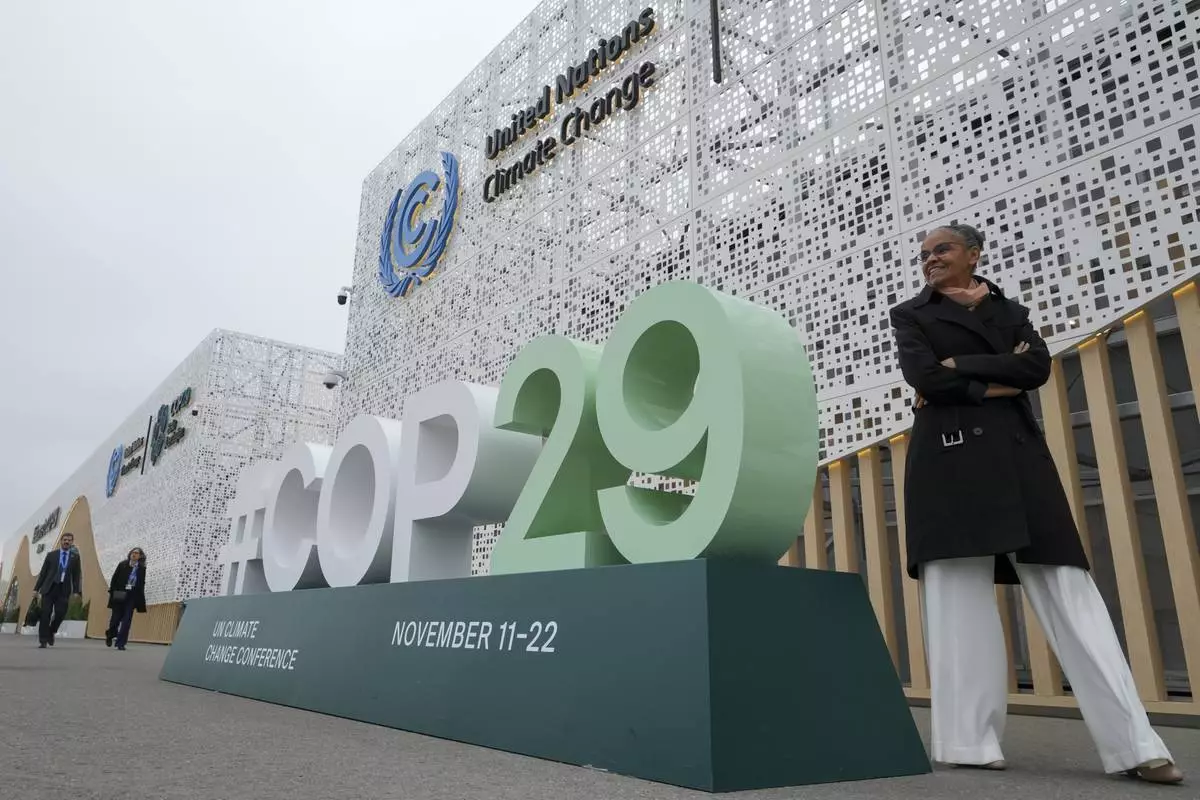
Marina Silva, Brazil environment minister, stands near a sign for the COP29 U.N. Climate Summit, Saturday, Nov. 23, 2024, in Baku, Azerbaijan. (AP Photo/Sergei Grits)
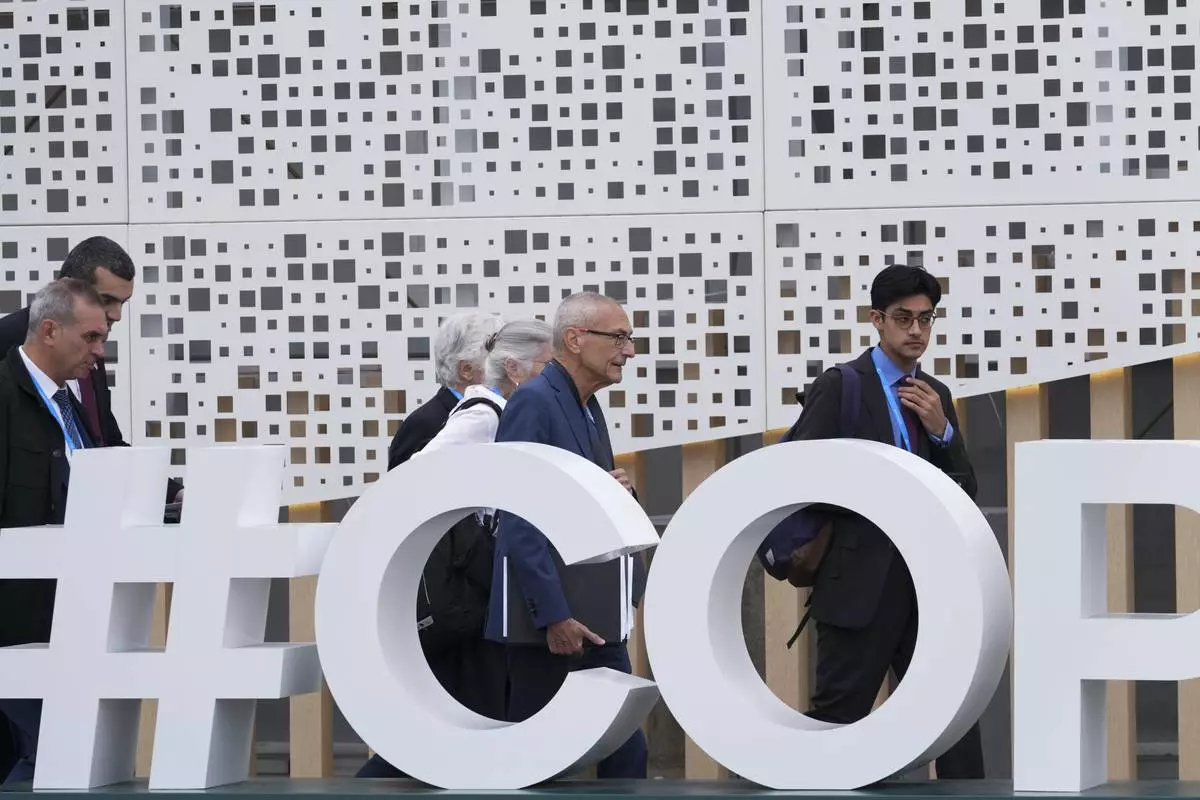
John Podesta, U.S. climate envoy, center right, and U.S. Deputy Climate Envoy Sue Biniaz, center, walk outside the venue for the COP29 U.N. Climate Summit, Saturday, Nov. 23, 2024, in Baku, Azerbaijan. (AP Photo/Sergei Grits)
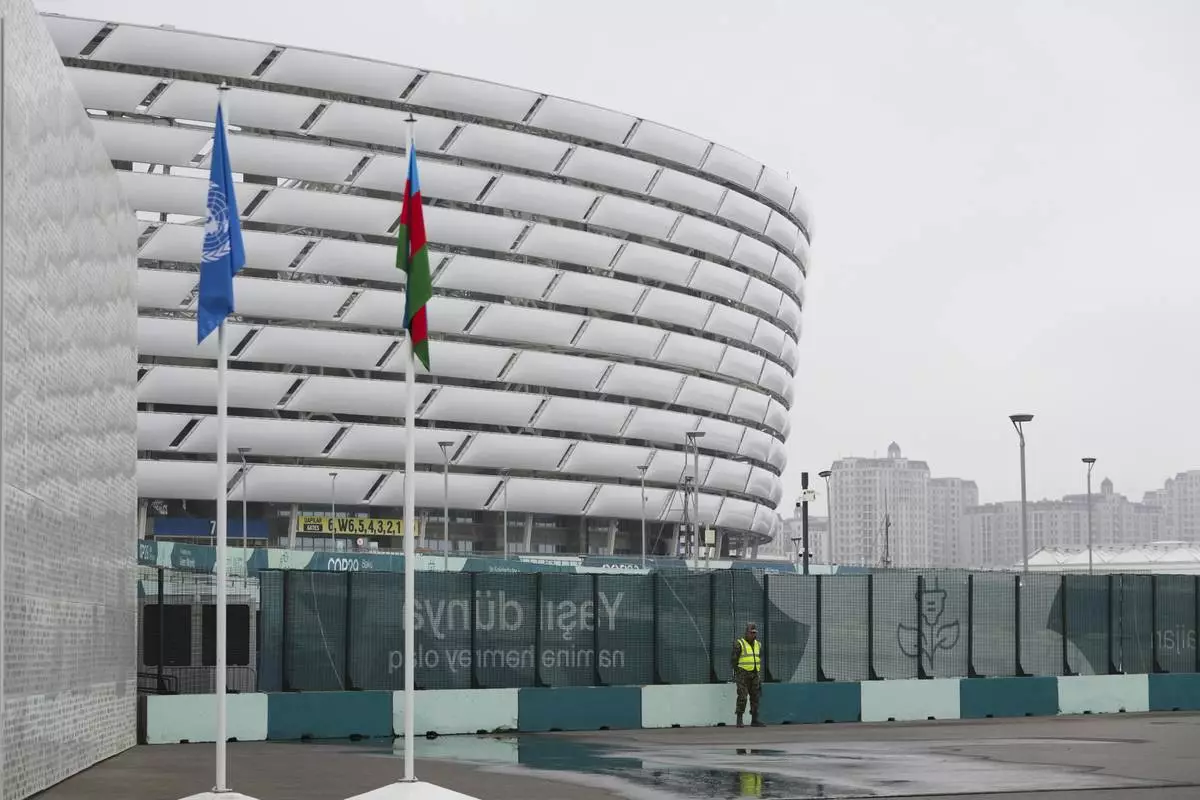
A member of security stands with the Baku Olympic Stadium in the background during the COP29 U.N. Climate Summit, Saturday, Nov. 23, 2024, in Baku, Azerbaijan. (AP Photo/Sergei Grits)
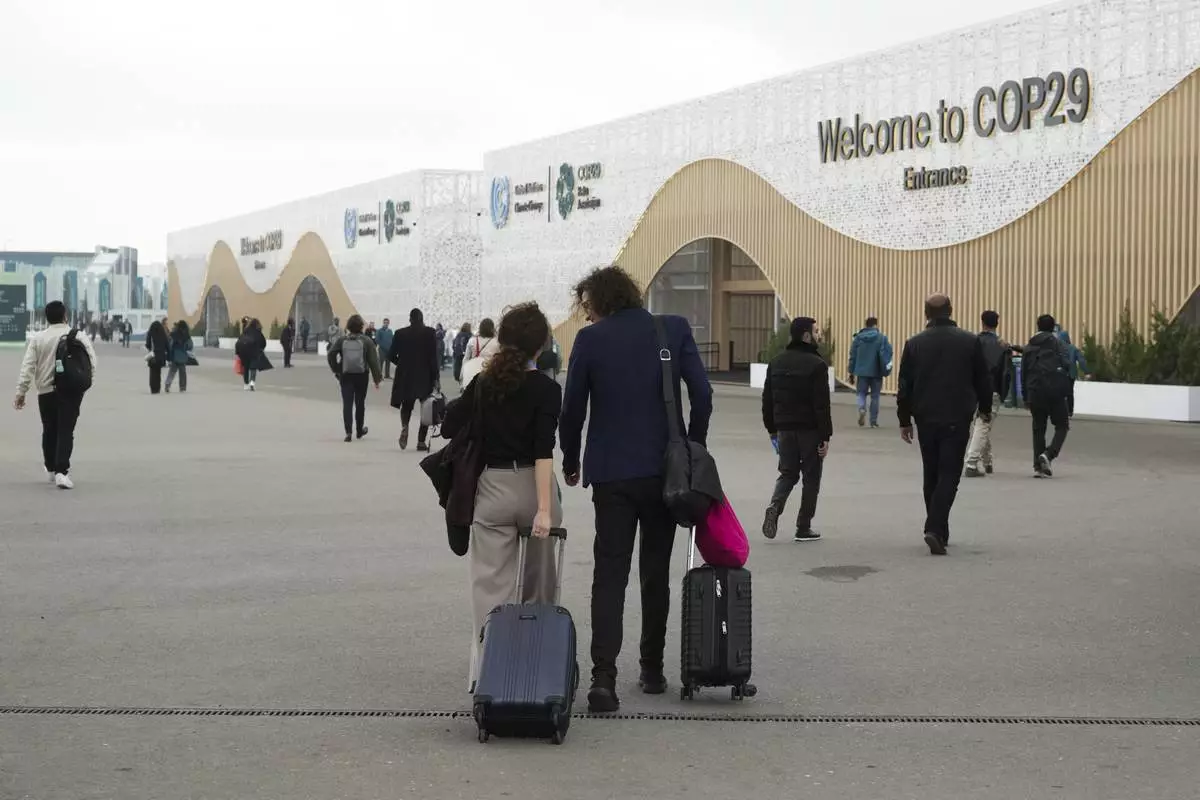
Attendees pull luggage as they walk into the venue for the COP29 U.N. Climate Summit, Saturday, Nov. 23, 2024, in Baku, Azerbaijan. (AP Photo/Sergei Grits)
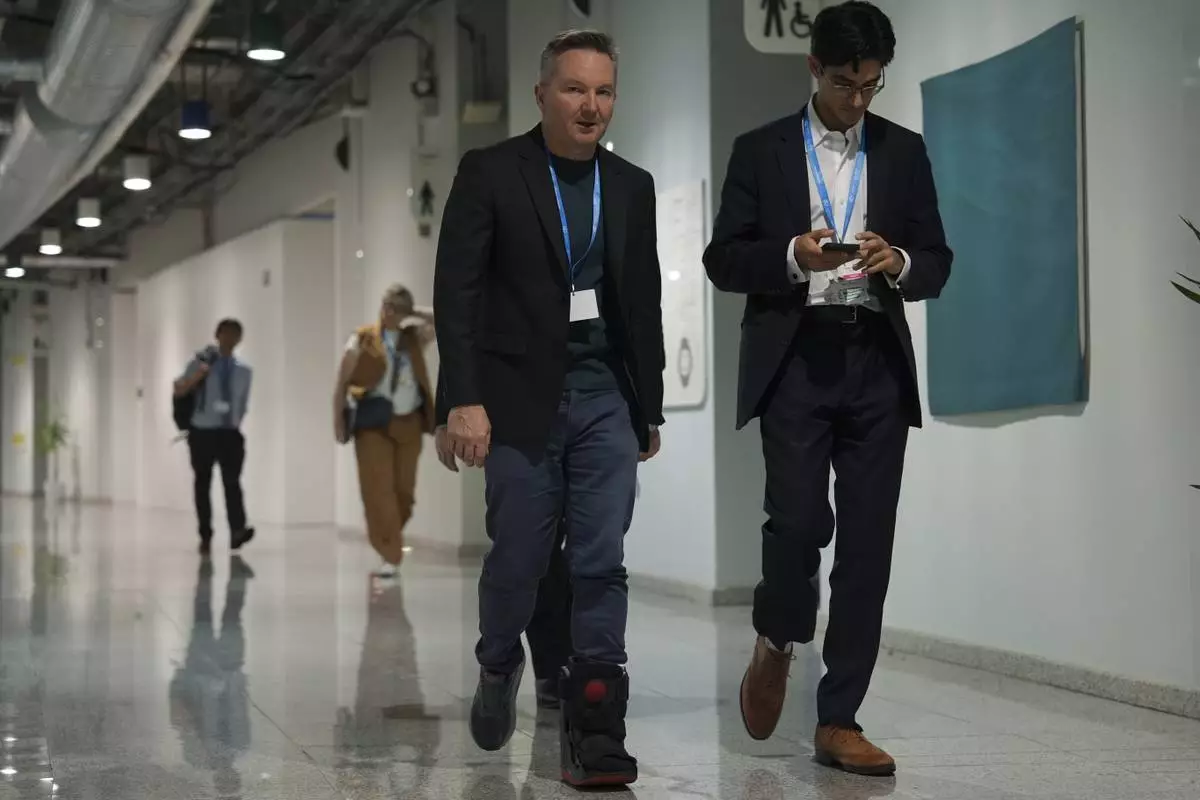
Australia Climate Minister Chris Bowen, center, walks through a hallway at the COP29 U.N. Climate Summit in the early hours of Saturday, Nov. 23, 2024, in Baku, Azerbaijan. (AP Photo/Joshua A. Bickel)
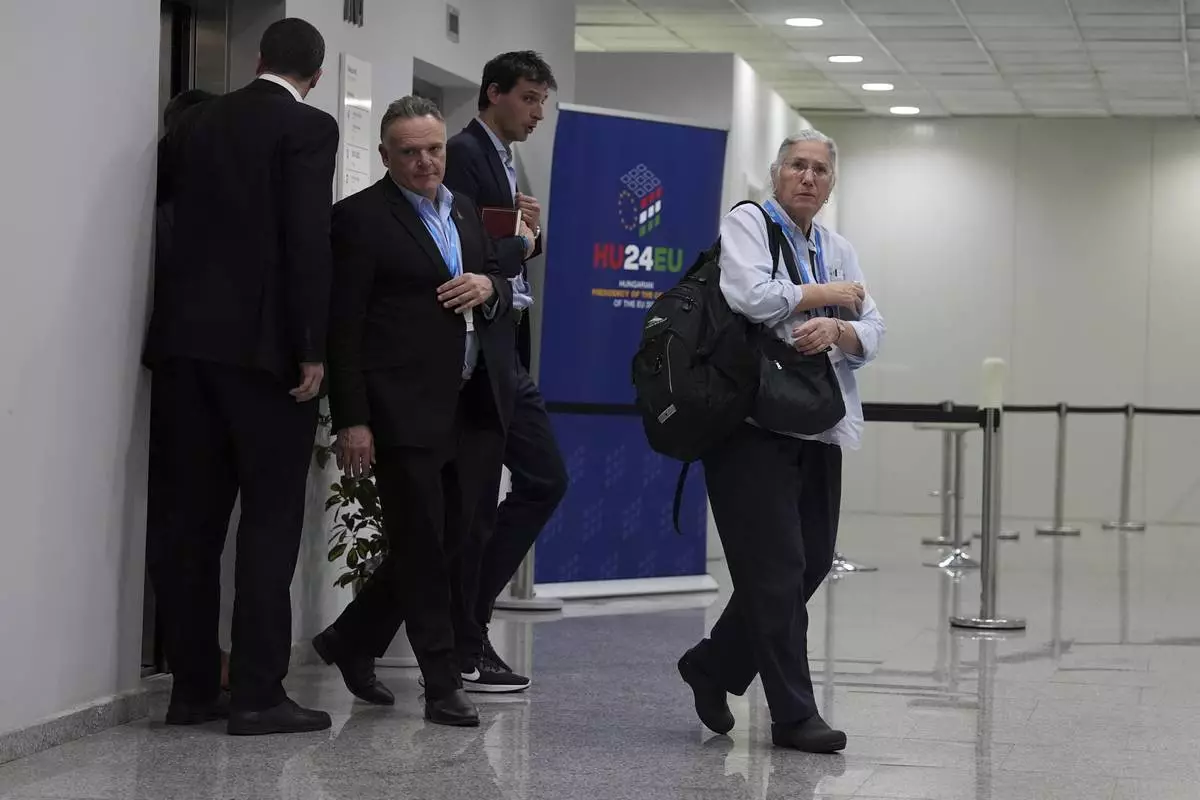
U.S. Deputy Climate Envoy Sue Biniaz, right, and Wopke Hoekstra, EU climate commissioner, second from right, walk out of an elevator during the COP29 U.N. Climate Summit in the early hours of Saturday, Nov. 23, 2024, in Baku, Azerbaijan. (AP Photo/Joshua A. Bickel)
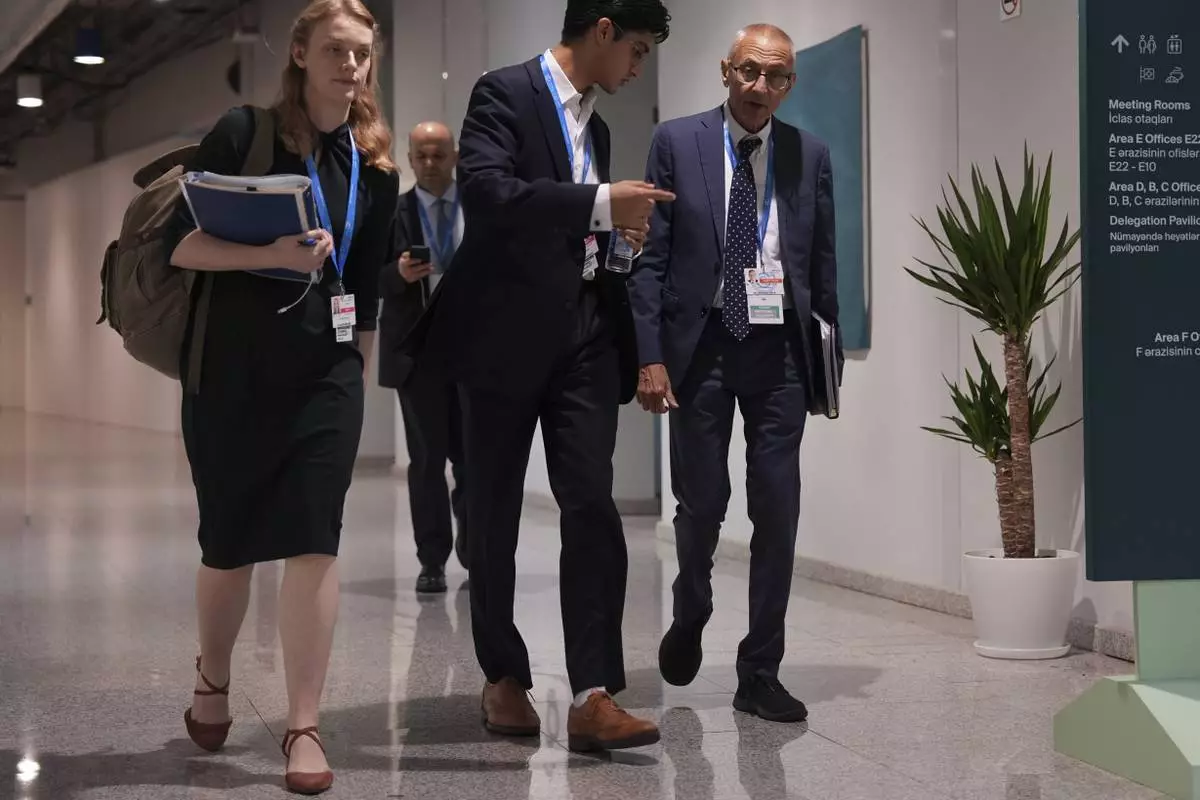
John Podesta, U.S. climate envoy, right, walks through the hallways of the COP29 U.N. Climate Summit in the early hours of Saturday, Nov. 23, 2024, in Baku, Azerbaijan. (AP Photo/Joshua A. Bickel)
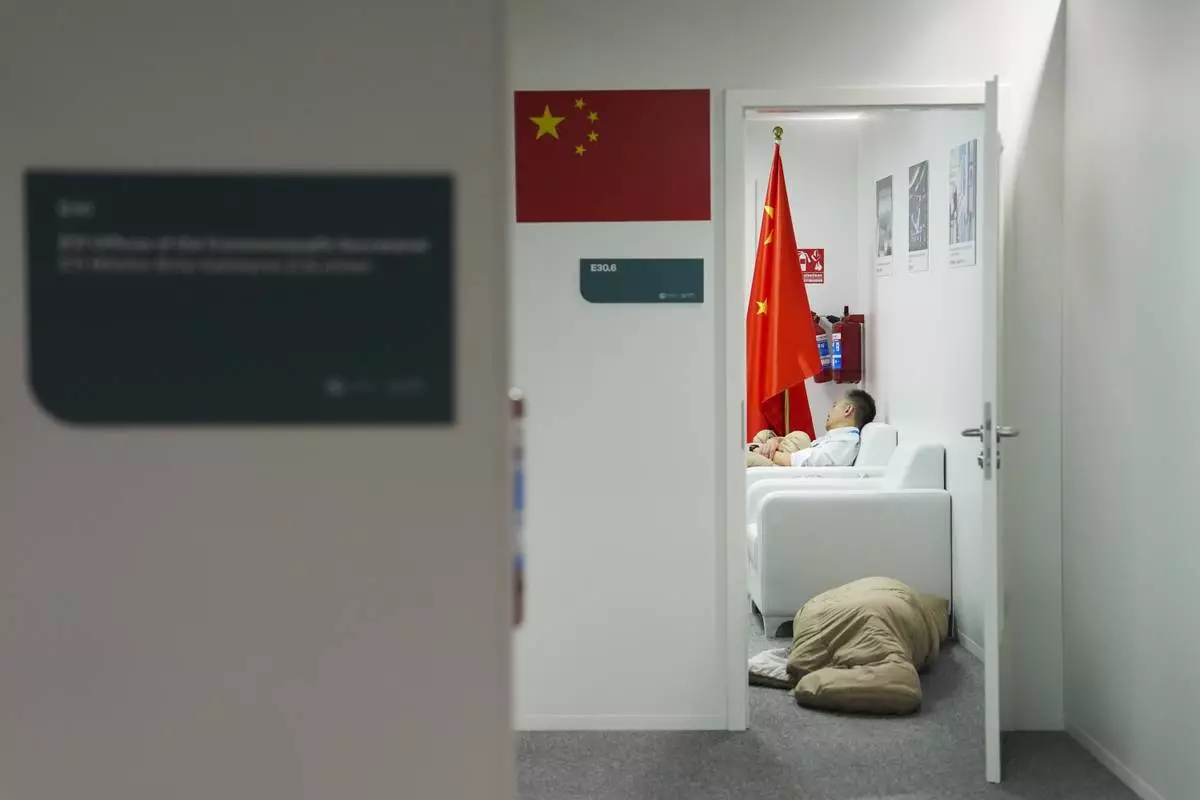
People sleep in the Chinese delegation offices at the COP29 U.N. Climate Summit in the early hours of Saturday, Nov. 23, 2024, in Baku, Azerbaijan. (AP Photo/Joshua A. Bickel)
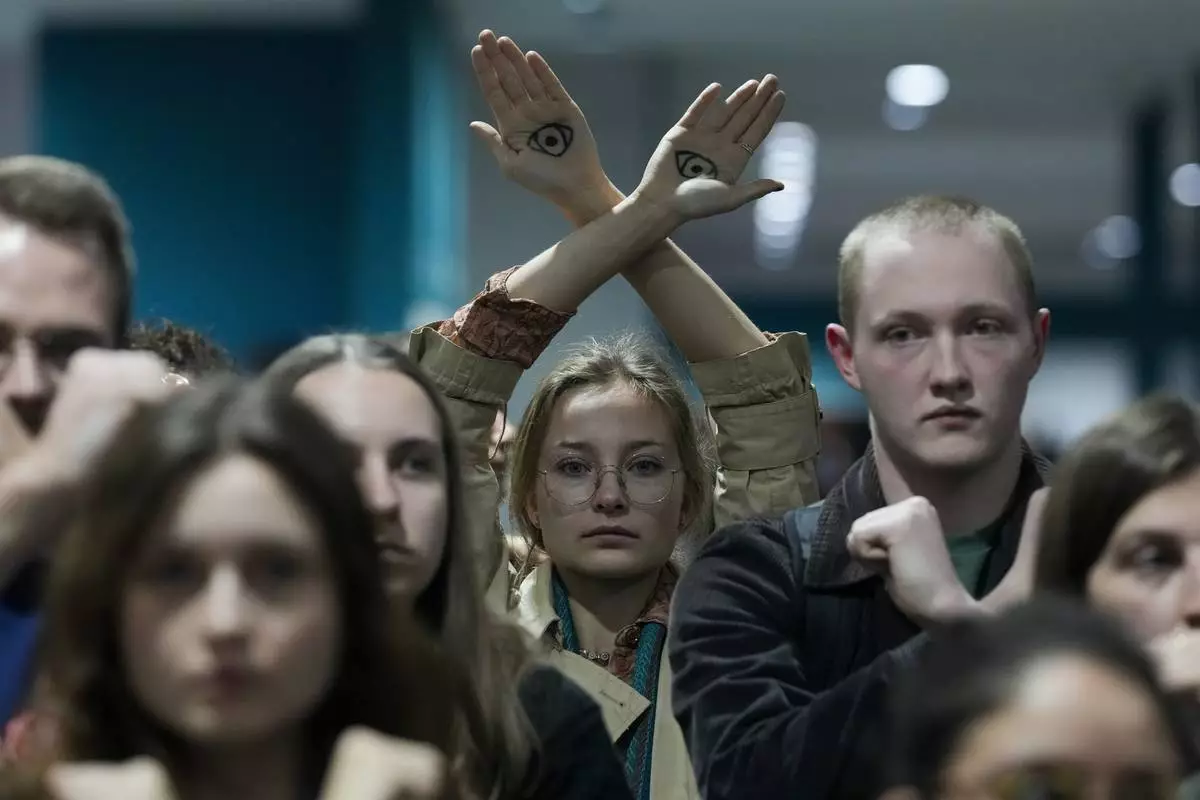
Activists demonstrate in silence protesting a draft of a proposed deal for curbing climate change at the COP29 U.N. Climate Summit, Friday, Nov. 22, 2024, in Baku, Azerbaijan. (AP Photo/Rafiq Maqbool)



